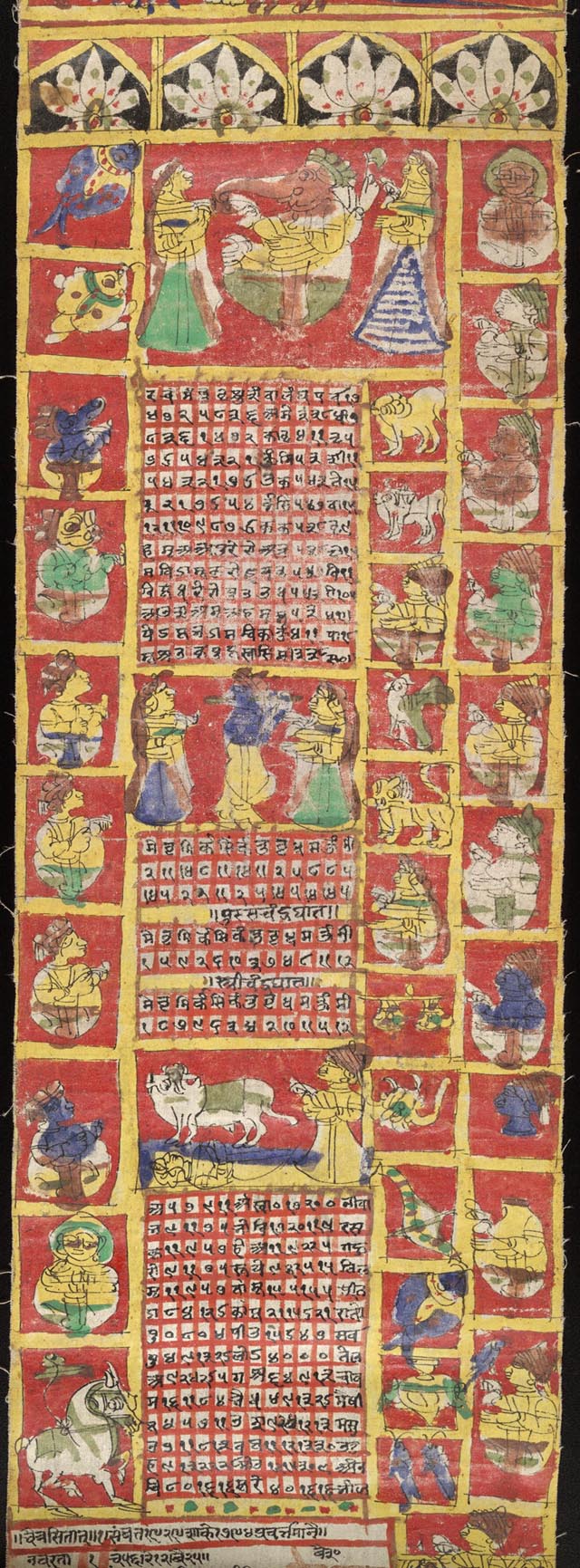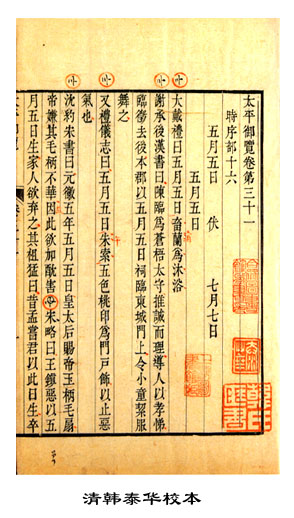|
Treatise On Astrology Of The Kaiyuan Era
The ''Great Tang Treatise on Astrology of the Kaiyuan Era'', also called the ''Kaiyuan Star Observations''Deng, Yinke. 005(2005). Chinese Ancient Inventions. (''Kaiyuan Zhanjing''),Needham, Volume 3, 109. is a Chinese astrology encyclopedia compiled by Gautama Siddha and a team of scholars between 714 and 724 AD during the Kaiyuan era of the Tang Dynasty. The book is divided into 120 volumes and consists of about 600,000 words. The ''Kaiyuan Zhanjing'' incorporates many fragments of other works, including the star catalogues of Shi Shen and Gan De and a translated version of Indian ''Navagraha'' calendar at chapter 104. It may have made use of the ''Yisizhan'', compiled by Li Chunfeng Li Chunfeng (; 602–670) was a Chinese mathematician, astronomer, historian, and politician who was born in today's Baoji, Shaanxi, during the Sui and Tang dynasties. He was first appointed to the Imperial Astronomy Bureau to help institute a ca ... around 645. Aryabhata's sine table by t ... [...More Info...] [...Related Items...] OR: [Wikipedia] [Google] [Baidu] |
Chinese Astrology
Chinese astrology is based on the traditional astronomy and calendars. Chinese astrology came to flourish during the Han Dynasty (2nd century BC to 2nd century AD). Chinese astrology has a close relation with Chinese philosophy (theory of the three harmonies: heaven, earth, and human), and uses the principles of yin and yang and concepts that are not found in Western astrology, such as the '' wuxing'' (five phases), the ten Heavenly Stems, the twelve Earthly Branches, the lunisolar calendar (moon calendar and sun calendar), and the time calculation after year, month, day, and ''shichen'' (, double hour). History and background Chinese astrology was elaborated during the Zhou dynasty (1046–256 BC) and flourished during the Han dynasty (2nd century BC to 2nd century AD). During the Han period, the familiar elements of traditional Chinese culture—the yin-yang philosophy, the theory of the five elements, the concepts of heaven and earth, and Confucian morality—were broug ... [...More Info...] [...Related Items...] OR: [Wikipedia] [Google] [Baidu] |
Indian Astronomy
Astronomy has long history in Indian subcontinent stretching from pre-historic to modern times. Some of the earliest roots of Indian astronomy can be dated to the period of Indus Valley civilisation or earlier. Astronomy later developed as a discipline of Vedanga, or one of the "auxiliary disciplines" associated with the study of the Vedas,Sarma (2008), ''Astronomy in India'' dating 1500 BCE or older. The oldest known text is the '' Vedanga Jyotisha'', dated to 1400–1200 BCE (with the extant form possibly from 700 to 600 BCE). Indian astronomy was influenced by Greek astronomy beginning in the 4th century BCEHighlights of Astronomy, Volume 11B: As presented at the XXIIIrd General Assembly of the IAU, 1997. Johannes Andersen Springer, 31 January 1999 – Science – 616 pages. page 72/ref>Babylon to Voyager and Beyond: A History of Planetary Astronomy. David Leverington. Cambridge University Press, 29 May 2010 – Science – 568 pages. page 4/ref>The History and Practice of ... [...More Info...] [...Related Items...] OR: [Wikipedia] [Google] [Baidu] |
Chinese Encyclopedias
Chinese encyclopedias comprise both Chinese-language encyclopedias and foreign-language ones about China or Chinese topics. There is a type of native Chinese reference work called '' leishu'' (lit. "categorized writings") that is sometimes translated as "encyclopedia", but although these collections of quotations from classic texts are expansively "encyclopedic", a ''leishu'' is more accurately described as a " compendium" or "anthology". The long history of Chinese encyclopedias began with the (222 CE) '' Huanglan'' ("Emperor's Mirror") ''leishu'' and continues with online encyclopedias such as the '' Baike Encyclopedia''. Terminology The Chinese language has several translation equivalents for the English word ''encyclopedia''. ''Diǎn'' 典 "standard; ceremony; canon; allusion; dictionary; encyclopedia" occurs in compounds such as ''zìdiǎn'' 字典 "character dictionary; lexicon", ''cídiǎn'' 辭典 "word/phrase dictionary; encyclopedia", ''dàdiǎn'' 大典 "colle ... [...More Info...] [...Related Items...] OR: [Wikipedia] [Google] [Baidu] |
Astrological Texts
Astrology is a range of divinatory practices, recognized as pseudoscientific since the 18th century, that claim to discern information about human affairs and terrestrial events by studying the apparent positions of celestial objects. Different cultures have employed forms of astrology since at least the 2nd millennium BCE, these practices having originated in calendrical systems used to predict seasonal shifts and to interpret celestial cycles as signs of divine communications. Most, if not all, cultures have attached importance to what they observed in the sky, and some—such as the Hindus, Chinese, and the Maya—developed elaborate systems for predicting terrestrial events from celestial observations. Western astrology, one of the oldest astrological systems still in use, can trace its roots to 19th–17th century BCE Mesopotamia, from where it spread to Ancient Greece, Rome, the Islamic world, and eventually Central and Western Europe. Contemporary Western astrolog ... [...More Info...] [...Related Items...] OR: [Wikipedia] [Google] [Baidu] |
Chinese Prose Texts
Chinese can refer to: * Something related to China * Chinese people, people of Chinese nationality, citizenship, and/or ethnicity **''Zhonghua minzu'', the supra-ethnic concept of the Chinese nation ** List of ethnic groups in China, people of various ethnicities in contemporary China ** Han Chinese, the largest ethnic group in the world and the majority ethnic group in Mainland China, Hong Kong, Macau, Taiwan, and Singapore ** Ethnic minorities in China, people of non-Han Chinese ethnicities in modern China ** Ethnic groups in Chinese history, people of various ethnicities in historical China ** Nationals of the People's Republic of China ** Nationals of the Republic of China ** Overseas Chinese, Chinese people residing outside the territories of Mainland China, Hong Kong, Macau, and Taiwan * Sinitic languages, the major branch of the Sino-Tibetan language family ** Chinese language, a group of related languages spoken predominantly in China, sharing a written script (Chinese ... [...More Info...] [...Related Items...] OR: [Wikipedia] [Google] [Baidu] |
8th-century Works
The 8th century is the period from 701 ( DCCI) through 800 ( DCCC) in accordance with the Julian Calendar. The coast of North Africa and the Iberian Peninsula quickly came under Islamic Arab domination. The westward expansion of the Umayyad Empire was famously halted at the siege of Constantinople by the Byzantine Empire and the Battle of Tours by the Franks. The tide of Arab conquest came to an end in the middle of the 8th century.Roberts, J., ''History of the World'', Penguin, 1994. In Europe, late in the century, the Vikings, seafaring peoples from Scandinavia, begin raiding the coasts of Europe and the Mediterranean, and go on to found several important kingdoms. In Asia, the Pala Empire is founded in Bengal. The Tang dynasty reaches its pinnacle under Chinese Emperor Xuanzong. The Nara period begins in Japan. Events * Estimated century in which the poem Beowulf is composed. * Classical Maya civilization begins to decline. * The Kombumerri burial grounds are founde ... [...More Info...] [...Related Items...] OR: [Wikipedia] [Google] [Baidu] |
Cheng Mingshan , or Cheng in Wade–Giles
{{disambig ...
Cheng may refer to: Chinese states * Chengjia or Cheng (25–36 AD) * Cheng Han or Cheng (304–338) * Zheng (state), or Cheng in Wade–Giles Places * Chengdu, abbreviated as Cheng * Cheng County, in Gansu, China * Cheng Township, in Malacca, Malaysia People * Cheng (surname), Chinese surname * Zheng (surname), Cheng in Wade–Giles and Cantonese * ChEng, abbreviation for chief engineer Other uses * Cheng language, a Mon–Khmer language of southern Laos * Cheng (musical instrument), an ancient Chinese musical instrument See also *Zheng (other) Zheng may refer to: *Zheng (surname), Chinese surname (鄭, 郑, ''Zhèng'') *Zheng County, former name of Zhengzhou, capital of Henan, China *Guzheng (), a Chinese zither with bridges *Qin Shi Huang (259 BC – 210 BC), emperor of the Qin Dynasty, ... [...More Info...] [...Related Items...] OR: [Wikipedia] [Google] [Baidu] |
Encyclopedia
An encyclopedia (American English) or encyclopædia (British English) is a reference work or compendium providing summaries of knowledge either general or special to a particular field or discipline. Encyclopedias are divided into articles or entries that are arranged alphabetically by article name or by thematic categories, or else are hyperlinked and searchable. Encyclopedia entries are longer and more detailed than those in most dictionaries. Generally speaking, encyclopedia articles focus on '' factual information'' concerning the subject named in the article's title; this is unlike dictionary entries, which focus on linguistic information about words, such as their etymology, meaning, pronunciation, use, and grammatical forms.Béjoint, Henri (2000)''Modern Lexicography'', pp. 30–31. Oxford University Press. Encyclopedias have existed for around 2,000 years and have evolved considerably during that time as regards language (written in a major international or a ... [...More Info...] [...Related Items...] OR: [Wikipedia] [Google] [Baidu] |
Li Chunfeng
Li Chunfeng (; 602–670) was a Chinese mathematician, astronomer, historian, and politician who was born in today's Baoji, Shaanxi, during the Sui and Tang dynasties. He was first appointed to the Imperial Astronomy Bureau to help institute a calendar reform. He eventually ascended to deputy of the Imperial Astronomy Bureau and designed the Linde calendar. His father was an educated state official and also a Taoist. Li died in Chang'an in 670. Background and career The Sui dynasty was integral for uniting China, so it was a good time for learning. But when Li was sixteen the Sui fell, and the Tang rose. Nevertheless, the Tang did not harm the conditions for education. Indeed, it rather strengthened it. The Imperial Academy's math teaching was formalized. He was appointed into the Imperial Astronomy Bureau as an advanced court astronomer and historian, in 627. Once several years had passed, he then was promoted to deputy director of the Imperial Astronomy Bureau in 641, and even ... [...More Info...] [...Related Items...] OR: [Wikipedia] [Google] [Baidu] |
Navagraha
Navagraha are nine heavenly bodies and deities that influence human life on Earth according to Hinduism and Hindu astrology. The term is derived from ''nava'' ( sa, नव "nine") and ''graha'' ( sa, ग्रह "planet, seizing, laying hold of, holding"). Note that the Earth, Uranus, Neptune and Pluto are excluded from the Navagraha,. However, the Sun is part of the Navagraha. In astrology, the term ''planet'' originally applied only to the five planets visible to the naked eye and excluded Earth. The term was later broadened, particularly in the Middle Ages, to include the sun and the moon (sometimes referred to as "lights"), making a total of seven planets. The seven days of the week in the Hindu calendar also correspond with the seven classical planets, and are named accordingly in most languages of the Indian subcontinent. Most Hindu temples around the world have a designated place dedicated to Navagraha worship. Planets, celestial bodies and lunar nodes Carnatic m ... [...More Info...] [...Related Items...] OR: [Wikipedia] [Google] [Baidu] |





